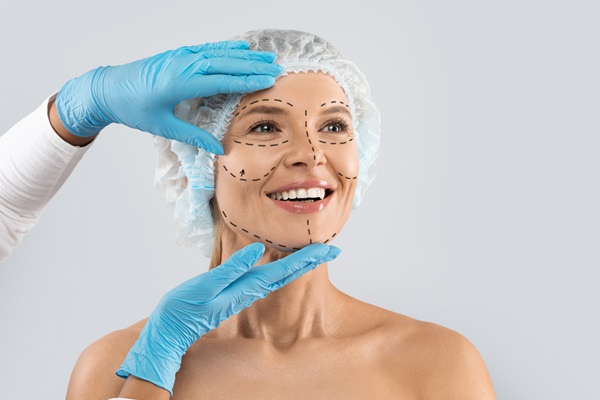Facial Surgery Recovery: Tips From an Oral Surgeon

A facial surgeon can correct problems with wisdom teeth and jawbones. This dental professional has a high level of training and experience to perform complicated surgeries to restructure the entire mouth. Knowing how you can recover well from such a procedure can prevent complications later on. Here are some tips that a facial surgeon can share about facial surgery recovery.
Take the prescribed medications according to the instructions
The patient must take antibiotics before and after the procedure. Doing so can reduce or remove the risk of infections. Continue to take these antibiotics throughout the prescribed period. These medications can make one’s recovery quicker and easier. There are also over-the-counter pain relievers for managing pain and discomfort if the facial surgeon does not prescribe them.
Practice mindful cleaning
After the procedure, the facial surgeon will tell the patient how to brush. The mouth may still be sensitive for regular oral care practices. The surgeon will remind the patient of the tender areas. Cleaning the neighboring teeth and gums must continue. A saltwater rinse can keep infections at bay and reduce pain and swelling.
Rest for an entire day
Take a day off from school or work after the facial surgery. The facial surgeon will use a sedative on the patient. This medication will make the individual sleepy before, during, and after the procedure. Driving or doing anything that needs focus is not an option.
Someone must drive the patient home and help the patient around the house until the sedative fades. Avoiding strenuous activities is ideal. Lifting, bending, or running can dislodge blood clots. This can then cause bleeding. Elevating the head by placing extra pillows under the head can help reduce or even stop the bleeding.
Apply some ice
The facial surgeon will warn the patient about facial swelling after the surgery. This is a normal tissue reaction after surgical manipulation. Managing this is possible by applying ice packs for the first day. Do this for 30 minutes and then remove it for about 15 minutes. Repeat this treatment many times a day for two to three days. Call the facial surgeon if there is pus formation or if the patient develops a fever.
Choose proper foods and drinks
Refrain from eating or drinking until the anesthetic fades. This will prevent accidental bite injuries to the soft tissues of the mouth. Avoiding hard, spicy, and hot foods or drinks is also necessary. Doing so can prevent any irritation to the surgical site. Soft and cool foods like yogurt or instant oatmeal are good choices.
Stop smoking or drinking alcoholic beverages
Studies show that tobacco and alcoholic beverages impair the body’s ability to oxygenate and circulate blood. This slows down the rate at which the body heals. The facial surgeon will recommend stopping these habits months before and after the procedure. Quitting them can help heal the treated areas.
A facial surgeon can help you recover better with the mentioned tips
Problems in your teeth or jaw may need the help of a facial surgeon. Going through corrective procedures is a big decision. Manipulating soft tissue and bone will need significant healing. Working with your facial surgeon can speed up your recovery. It may also lead to your procedure’s possible success.
Request an appointment here: https://www.premieroralsurgeryct.com or call Premier Oral Surgery at (203) 945-0049 for an appointment in our Norwalk office.
Check out what others are saying about our services on Yelp: Read our Yelp reviews.
Related Posts
Zygomatic implants are a type of dental implant ideal for patients with severe upper jawbone loss. Unlike traditional implants, which rely on the available jawbone for support, zygomatic implants are anchored into the zygomatic bone, a dense bone located in the cheek area. This approach bypasses the need for bone grafting, a common requirement in…
Bone grafting is a surgical procedure that is done to rebuild bone loss or repair bone damage in the oral cavity. When a tooth is lost or removed from its socket, the alveolar bone supporting it starts to deteriorate, resulting in a gradual collapse of facial features. If this happens, a patient who opts for…
A root canal and apicoectomy are the two endodontic procedures that can save a tooth. Between the two surgeries, the root canal is the more common one. One will only get an apicoectomy if a root canal fails. If you want to know the difference between a root canal and an apicoectomy, here are the…
All on 4 dental implants are permanent solutions to missing teeth. This dental replacement system can replace many teeth in one dental arch. It can also replace a full dental arch. You can achieve a natural-looking smile while enhancing your oral health. Here are the details on why All on 4 is the most effective…
